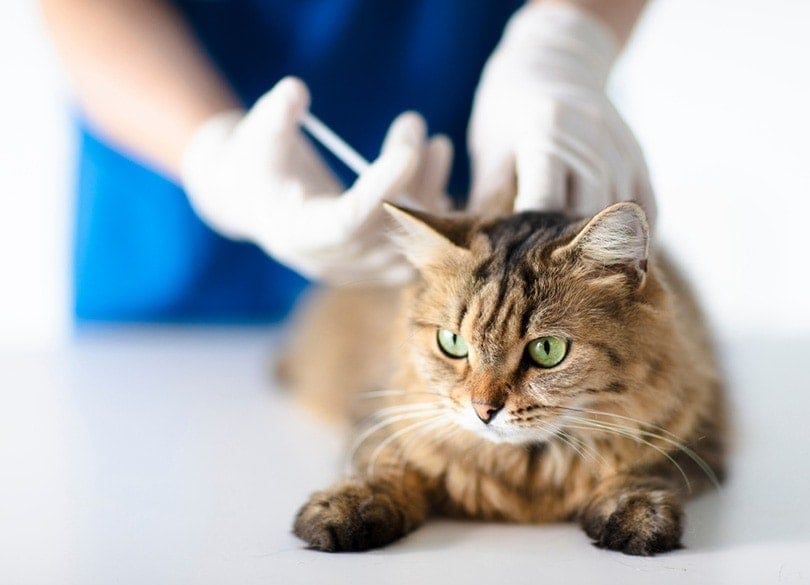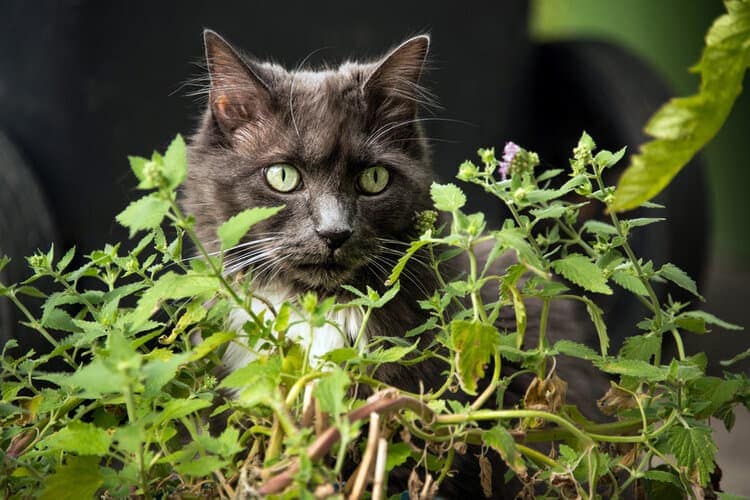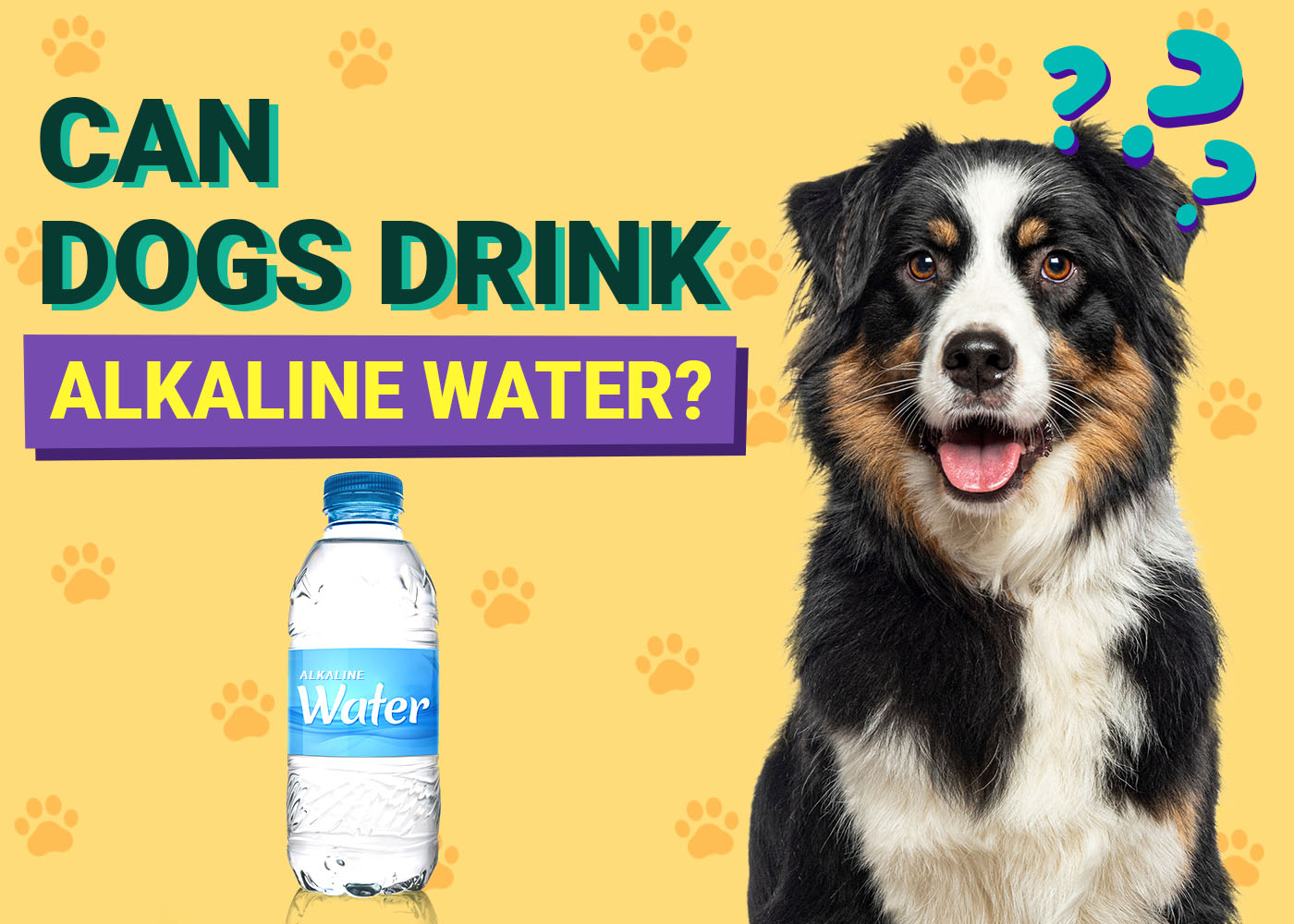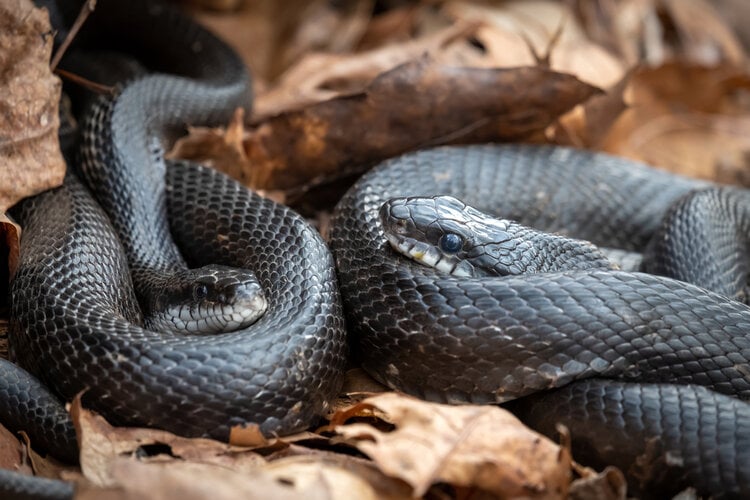VET APPROVED

The information is current and up-to-date in accordance with the latest veterinarian research.
Learn more »Vaccinations are one of the first things on your mind as a new cat owner. Kittens are highly vulnerable to infectious diseases when they are younger than 6 months old, and any cat that has not yet received its necessary vaccinations is at risk of contracting various diseases.
As with anything else health-related, vaccines will come at a cost. We’re here to provide you with a detailed guide on cat and kitten vaccinations in Australia and the current prices.

The Importance of Cat & Kitten Vaccinations
There’s a reason why immunizations are a necessity for cats and kittens. These vaccinations are to protect them from a variety of harmful and sometimes fatal diseases. Since most cats are vaccinated against major infectious diseases, most of these conditions are nowadays less common than before.
Failing to get your cat vaccinated will not only put them at risk but also any other cats they are in contact with, including the wild population.
If you have questions about vaccinating your cat, it’s a good idea to speak with a veterinarian.
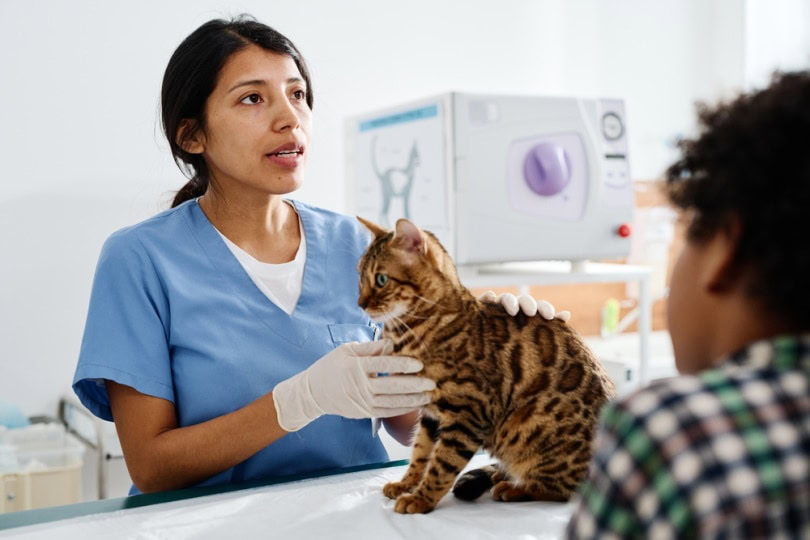
How Much Does It Cost to Have Your Cat or Kitten Vaccinated?
The cost of cat and kitten vaccinations can vary considerably depending on a few factors including your cat’s health needs, the clinic you are visiting, and your geographical location. On average, vaccinations for cats and kittens average out to the following:
| Initial Vaccinations for Kittens: | $170–$200 AUD |
| Annual Boosters: | $80 AUD |

Additional Costs to Anticipate
In addition to paying for the price of vaccinations, you will also need to consider other associated costs:
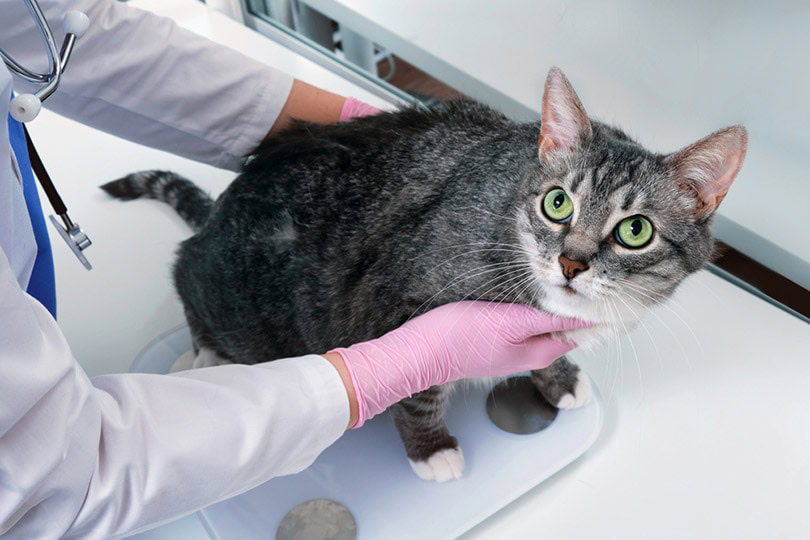
Exam Fee
Before you can get the vaccinations completed, you will need to contact your veterinarian to make the appointment. Those fees typically fall anywhere between $50 and $100 AUD for the examination alone.
Laboratory Tests
If your vaccinations are part of a routine health check, you may have some laboratory tests included in the price. These tests can include a complete blood count (CBC), biochemistry profile, urinalysis, and thyroid hormone testing. Talk to the veterinary staff when scheduling your appointment to get an idea of what testing is part of routine care and get an accurate price estimate.
Microchip
If you’ve brought home a new cat and they haven’t received a microchip, it is highly recommended that you have them chipped. This can cost anywhere from $30 to $75 depending on where it’s done. Cats that are adopted from the animal shelter will typically come microchipped upon adoption.

How Often Should I Vaccinate My Cat?
Kittens will need to start getting their vaccinations between 6 and 8 weeks of age, and then every 4 weeks until they are 16 weeks of age. Kittens will not be considered fully protected until 7 to 10 days have passed since their last set of vaccines.
Once those initial vaccines are completed, they will then start receiving boosters starting at 1 year old that will either take place annually or tri-annually.
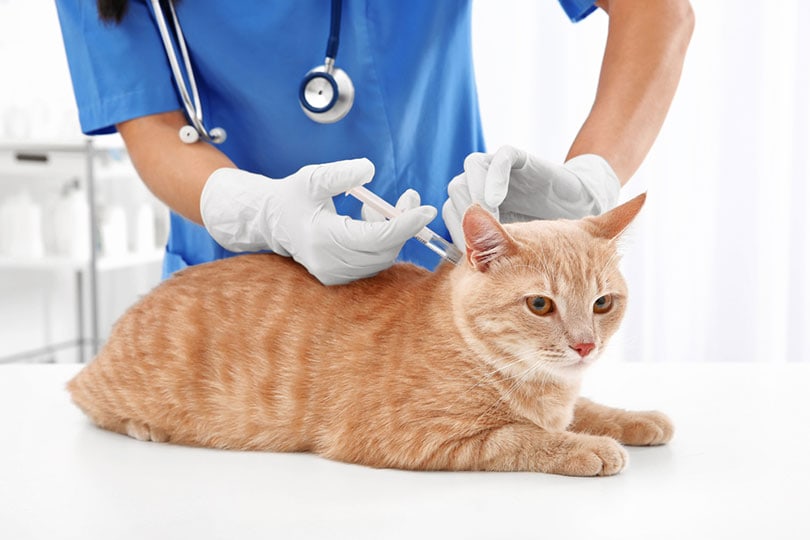
Vaccine Schedule for Cats & Kittens
| Age | Core Vaccines | Non-Core Vaccines |
| 6-8 weeks | F3 Vaccine – Herpes, Calicivirus, Panleukopenia | FIV |
| 10-12 weeks | F3 Vaccine – Herpes, Calicivirus, Panleukopenia | FIV, FLV, Chlamydophila felis, FIP, Bordetella |
| 14-16 weeks | F3 Vaccine – Herpes, Calicivirus, Panleukopenia | FIV, FLV, Chlamydophila felis, FIP, Bordetella |
| 1 year | F3 Vaccine – Herpes, Calicivirus, Panleukopenia | FIV, FLV, Chlamydophila felis, FIP, Bordetella |
Does Pet Insurance Cover Vaccinations?
Pet insurance may or may not cover vaccinations. This will be dependent on your provider and coverage plan. Pet Insurance Australia or PIA is currently the only pet insurance provider in the country that includes routine care in their plan.

Vaccinations Explained
Vaccinations are divided into two different categories, core, and non-core. Here’s a more detailed look at each of the core and non-core vaccines for cats and kittens:
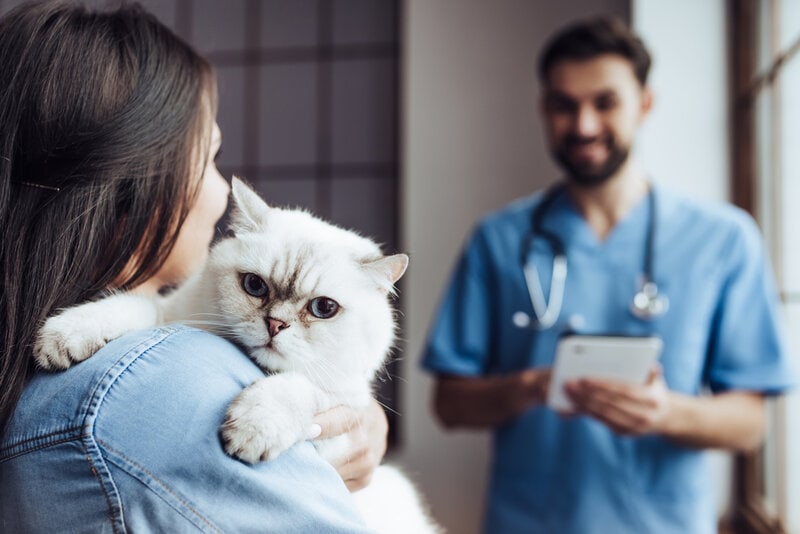
Core Vaccines
- Feline herpesvirus: Feline herpesvirus is also known as feline viral rhinotracheitis or FVR. It is an infectious disease caused by feline herpesvirus type-1 and is a common cause of respiratory infection in cats. It is highly contagious and results in sneezing, conjunctivitis, discharge of the eyes and nose, decreased appetite, and lethargy.
- Feline calicivirus: Feline calicivirus is very contagious and referred to as the cat flu. Symptoms include sneezing, nasal and eye discharge, conjunctivitis, tongue ulcers, lethargy, enlarged lymph nodes, and lack of appetite.
- Feline panleukopenia: Feline Panleukopenia, also known as feline distemper, is a viral disease that suppresses the production of white blood cells in the body. This leads to compromised immunity and makes cats susceptible to various infections.
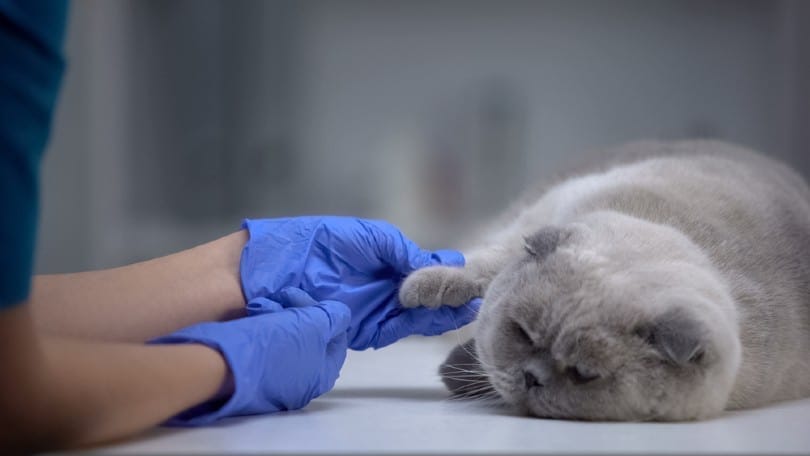
Non-core Vaccines
- Feline immunodeficiency virus (FIV): FIV is a virus that targets the immune system, leaving cats susceptible to other infections. There is no cure for FIV, and it is highly recommended that your cat be vaccinated against the disease if they are ever allowed outside.
- Feline leukemia (FeLV): FeLV is an incurable, life-threatening disease that is more common in outdoor cats. There is no cure and treatment is aimed at supporting the infected animal. Cats infected with FeLV often develop anemia, a suppressed immune system, and cancer.
- Chlamydophila Felis: Chlamydophilia Felis is a bacterial infection that leads to conjunctivitis in cats. It is spread through direct contact and is much more common among large groups of cats such as animal shelters, multiple-cat households, and breeding households. It can be treated successfully with antibiotics and the vaccine is usually only recommended in certain high-risk situations.
- Bordetella bronchiseptica: Bordetella bronchiseptica bacterial disease that can easily lead to upper respiratory infection in cats. Symptoms include sneezing, eye and nose discharge, coughing, and a fever. This disease can be successfully treated with antibiotics as needed. The vaccination is occasionally recommended when cats are in areas of high risk of infection including animal shelters or boarding facilities.
- Feline Infectious Peritonitis: FIP is a viral disease that is caused by certain strains of the feline coronavirus. This virus can cause appetite loss, fever, vomiting, diarrhea, seizures, and death. The vaccine is not a routine part of the regime but is available for high-risk situations.
- Rabies: Rabies is a fatal zoonotic viral disease that affects the brain and central nervous system. It is spread through bites or scratches from an infected animal. Australia is considered rabies-free, but it is recommended that your cat be vaccinated if you plan to travel outside the country.

Conclusion
You can expect your kittens’ initial vaccinations to cost between $170 and $200, while routine booster shots for cats 1 year of age or older will cost an average of $80. This doesn’t factor in the cost of the examination and any other fees associated with the veterinary care your cat is receiving.
Core vaccines are the necessary immunizations that all cats should receive, and non-core vaccines are optional and typically recommended when cats are at higher risk of the associated disease. If you ever have any questions about pricing, safety, or any other concerns with your cat’s vaccinations, be sure to reach out to your trusted veterinarian.
See Also:
- How Much Does It Cost to Own a Cat in Australia?
- Average Cost of Cat & Kitten Vaccinations in Canada
Featured Image Credit: Pressmaster, Shutterstock
Contents
- The Importance of Cat & Kitten Vaccinations
- How Much Does It Cost to Have Your Cat or Kitten Vaccinated?
- Additional Costs to Anticipate
- How Often Should I Vaccinate My Cat?
- Vaccine Schedule for Cats & Kittens
- Does Pet Insurance Cover Vaccinations?
- Vaccinations Explained
- Core Vaccines
- Non-core Vaccines
- Conclusion
